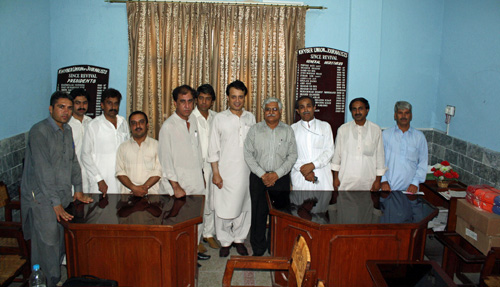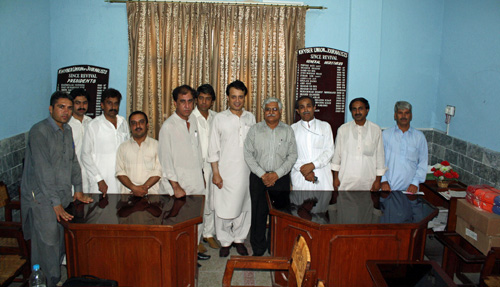In an alert on Monday, we reported on an attack that left at least six women and children seriously injured at the home of local television journalist Zafarullah Bonari along the Pakistan-Afghanistan border. A group of unidentified attackers threw grenades and opened fire on Bonari’s house. The information was scant when we first heard about the attack in a rushed e-mail message from a member of the Bajaur chapter of the Tribal Union of Journalists.
It’s the sort of message that we respond to as quickly as possible—local journalists under assault, asking for assistance. We confirmed details with Mazhar Abbas, deputy director of ARY One World Television in Islamabad— Bonari worked for ARY—and moved the alert.
Monday’s attack is hardly an isolated incident in the region. On July 7, BBC monitoring reported that, in Bajaur, “unidentified persons threw several hand-grenades at the houses of Noor Muhammad Binori and Imran Khan, both local journalists, and ran away. Seven persons including five women and two men sustained injuries in the incidents and the houses were damaged partially.”
Having your family and house and home come under attack is part of the cost of being a journalist in a conflict area like the Af-Pak border—a reality we reported on last year in our five-part blog series, “The Frontier War.”
In July 2009, I was in Peshawar to research the report. Peshawar is the jumping-off point for entry into the Federally Administered Tribal Areas, and most of the other parts of Khyber Pakhtunkhwa, the new name for the North West Frontier province. The area is where the Pakistan Army continues to conduct ITS heavy-handed operations to flush out entrenched Taliban and al-Qaeda groups. I met with local journalists, and was told by Sher Khan Afridi, president of the Khyber Union of Journalists, that as many as six houses of journalists had been targeted by militant groups confronting the government during its military offensive into the neighboring area of Swat. At the Peshawar Press Club, I met with a large group of reporters—among them were two men who claimed to have had their houses blown up, Behroz Khan and Rahman Bunairee. Several others said they feared the same would happen to them.

Above is one of those group pictures you always take after a meeting like the one I had in Peshawar. Afridi is the gray-haired gentleman with the black pants. To his right is Iqbal Khattak, reporter for the Daily Times and Central Asia Online. To his right are Rahman Bunairee, now in exile in the United States, and Behroz Khan, a senior analyst working for Geo TV who is still covering the story on the frontlines. The stories of Bunairee and Khan, who had their homes blown up, are available here.
